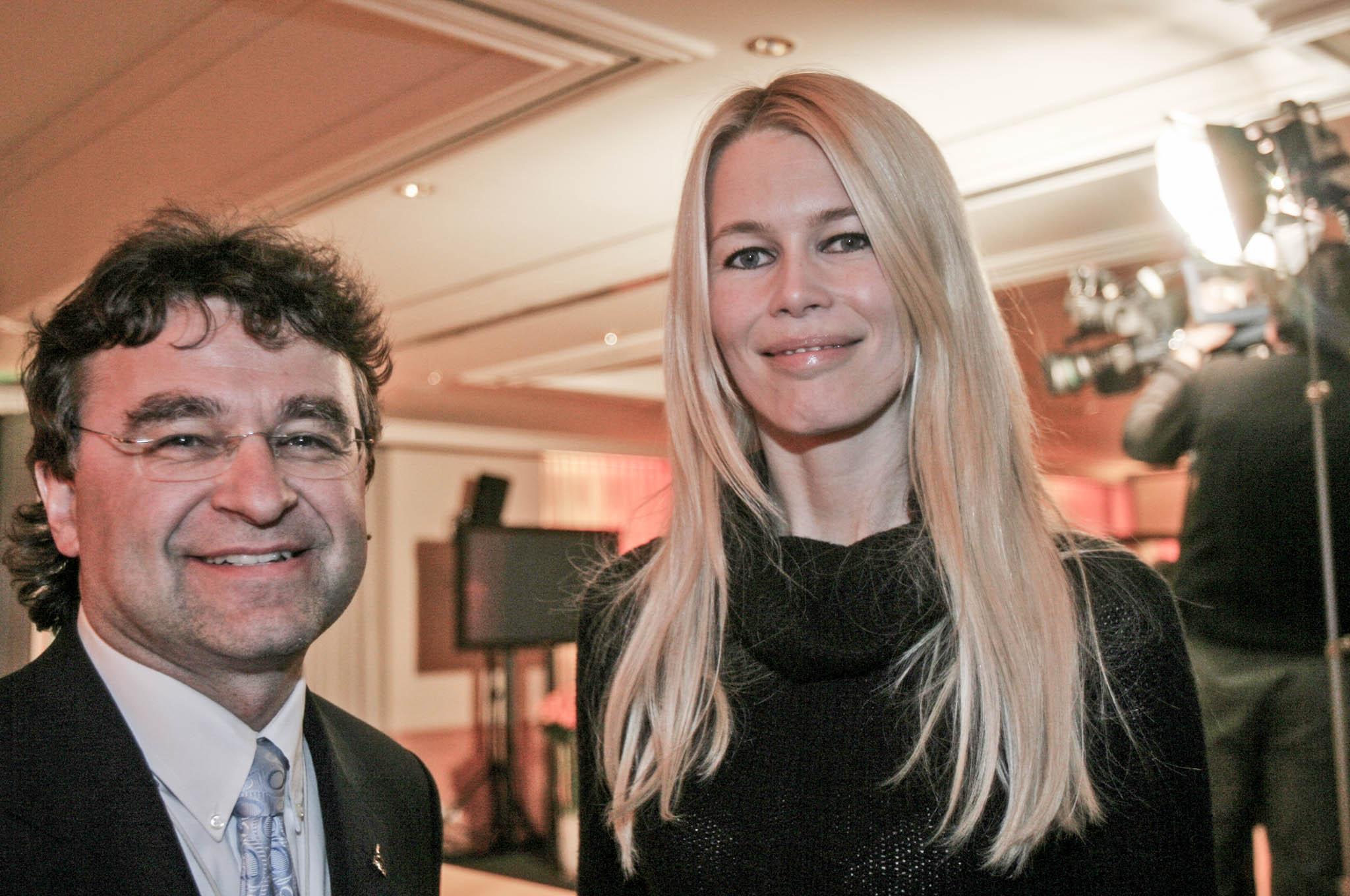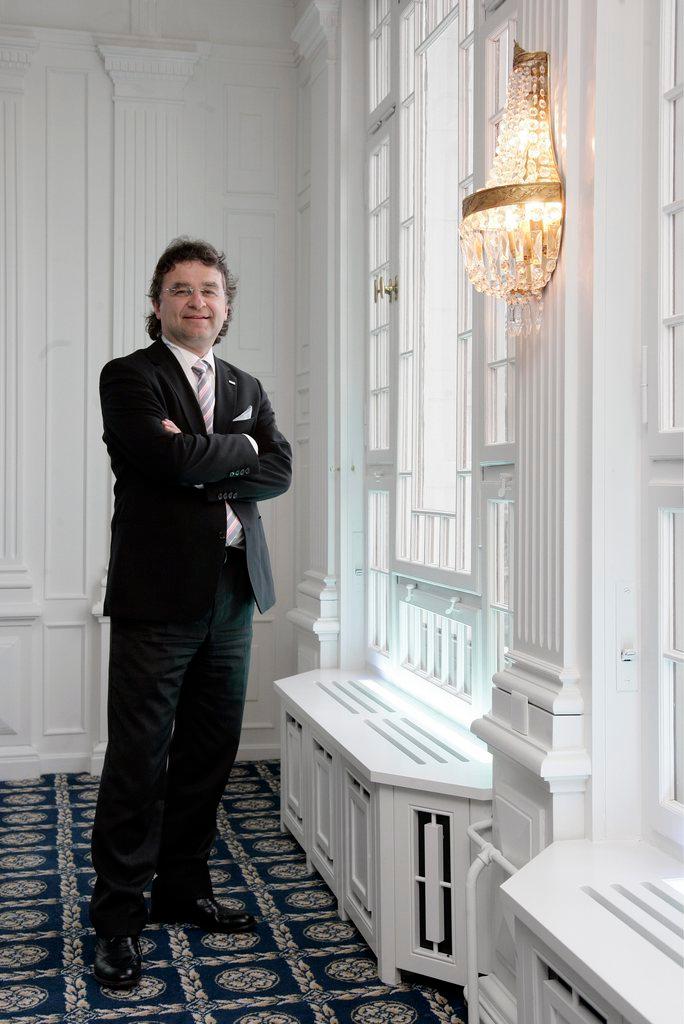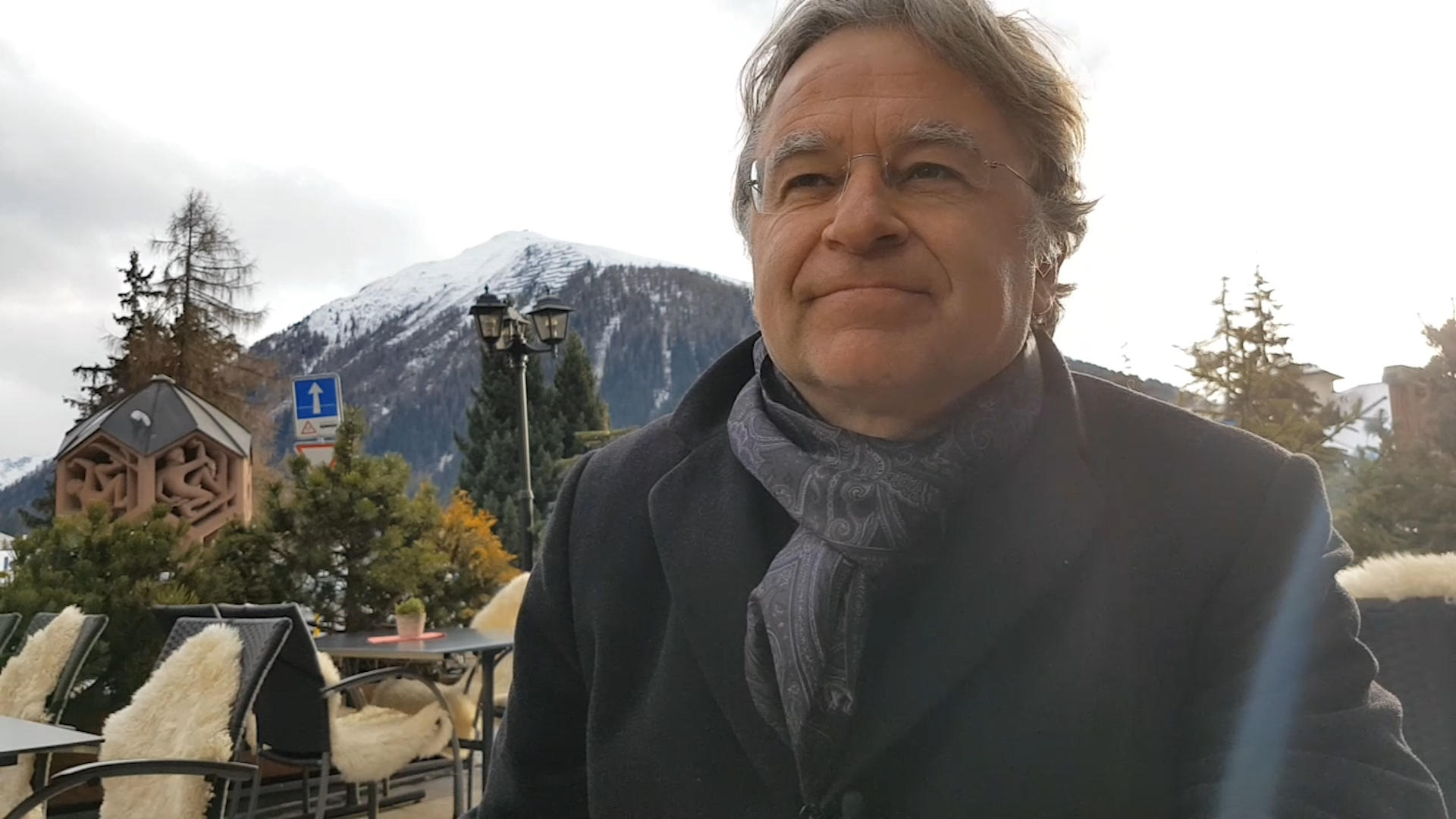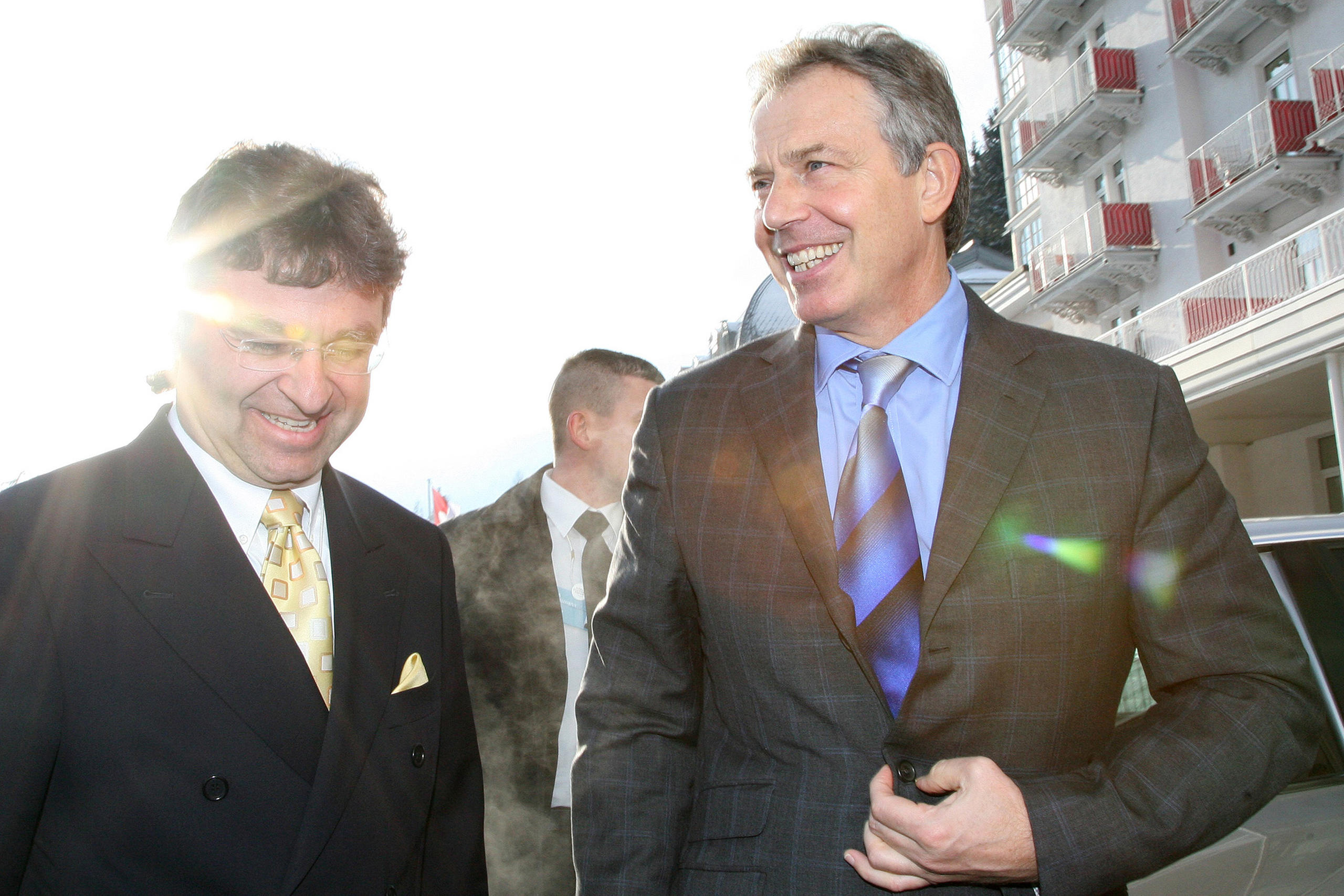
‘I don’t lecture, I make people happy’

Bill Clinton, Muhammad Ali, Angelina Jolie, Kofi Annan, Richard Gere, Angela Merkel - the list goes on. Ernst Wyrsch has welcomed many famous guests at the Steigenberger Grand Hotel Belvédère during the World Economic Forum’s (WEF) annual meetings in Davos.
Between 1996 and 2011, Wyrsch and his wife ran the five-star hotel in Davos. He spoke to swissinfo.ch about the significance of WEF, the profits it brings in and guests from countries with dubious reputations.
swissinfo.ch: You left the Belvédère five years ago. How do you look back at your experiences during WEFExternal link?
Ernst Wyrsch: I was in the eye of the tornado for 15 years, and I say that with enormous gratitude and pride. It was often chaotic. Thankfully myself, Switzerland, canton Graubünden and Davos always understood that this brought more profit than expense.
swissinfo.ch: Today you are president of the Graubünden chapter of the Swiss Hotel Association. In that role, do you have any special tasks at WEF?
E.W.: No, but I still benefit from WEF because the number of overnight stays during and after WEF boosts our statistics. And considering the extra value these guests bring besides overnight stays, then it benefits me all the more in my position.

swissinfo.ch: Writing a column for the Bündner Tagblatt during your tenure at the Belvédère, you painted a picture of an unhealthy job: 20 hour days, hardly any sleep and being permanently on edge.
E.W.: WEF was a unique week that was the exception to the normal rule. As sports people say: you don’t complain about the number of games you have to play when you reach the final. In all this time, I never came close to a burnout.
swissinfo.ch: You sometimes welcomed heads of state from countries with dubious human rights records.
E.W.: Yes
swissinfo.ch: You never felt the urge to address the issue?
E.W.: No, because I never saw myself as a moralist in my role as host. I never had the urge to judge my guest. My job was simply to fulfil their expectations. To do otherwise would be to overestimate my position as host. At WEF, the highest moral judgement came from Professor Schwab. When he invited someone, he always had his reasons.
swissinfo.ch: There are lots of conflicting opinions about WEF. What’s your personal opinion?
E.W.: I think if WEF did not exist today, there would be a need for it to be created. It is unique that influential people from politics, business, education, NGOs, sport and culture can get together for three to five days and tackle such varied and important themes. There is no other platform like it. Not even the United Nations can offer this. WEF can.
And I also think that only Switzerland can offer this type of event. I can’t think of any other country that has such a credible stance on neutrality as Switzerland. This event could not function in the United States.

More
Ernst Wyrsch
swissinfo.ch: The view from the outside of WEF is a combination of barbed wire, celebrity and armoured vehicles. How would you describe Davos during WEF to outsiders?
E.W.: This is a Swiss perspective. We are not used to having such tight security measures. If you live in a country that has more to do with prominent functions, such as the Olympic Games or other big events, then this is a common sight.
I am of the opinion that Davos is also interesting to other people during WEF. The ski slopes are free because anyone attending WEF is very busy. Certain hotspots have to have high security because terrorists have always attacked undefended targets over the last 20 or 30 years.
It is also an international duty for Switzerland to defend the people who come to WEF. But it is not my perception that you can’t wander freely around Davos during WEF.
swissinfo.ch: Spontaneous security spot checks on the streets of Davos have recently been removed.
E.W.: What has changed is that 12 years ago there were loud, noisy demonstrations against WEF. They have now been consigned to folklore. Professor Schwab has succeeded in explaining that the very things the protestors are shouting about are being discussed here.
He has shown that “improving the state of the world” [WEF’s motto] also involves challenging powerful people and making them feel uncomfortable. NGOs and environmental organisations can also use WEF as a platform.

More
WEF elite, up close and personal
swissinfo.ch: Not everybody in Davos can benefit from WEF though.
E.W.: In my opinion they already do – indirectly or in part. A teacher, for example, benefits because they can keep their job and children come to their school. I find it difficult to think of anyone who doesn’t benefit.
swissinfo.ch: Ski lifts don’t have much business during WEF because the slopes are empty.
E.W.: Yes, but ski lift operators are also the biggest hoteliers with more than 2,000 beds between them. They can sell these beds for a much higher price during this week than at any other time.
swissinfo.ch: In 2002, WEF was held in New York in solidarity for the victims of the terror attacks the year before.
E.W.: The cancellation of Davos came in November, just two months before WEF. That was terrible, but also a salutary shock for the town. People could feel the effects of WEF not being here. Fortunately, WEF returned one year later.
swissinfo.ch: The visit of Bill Clinton was well documented. You welcomed the former US President on 11 occasions. Was he your favourite guest?
E.W.: My favourite guests are those with whom I built a personal relationship. Bill Clinton belonged to that group because he had a warm personality and I could have good conversations with him. This led to a bond between us.
swissinfo.ch: In 2000, the US media said Clinton’s life had been put at risk by the violent demonstrations against WEF at Davos.
E.W.: There were difficult moments, but we never felt there was a security risk – it was more a distraction from WEF. The media was wrong to question the security arrangements and also the image of safety and reliability of both Switzerland and WEF.

In compliance with the JTI standards
More: SWI swissinfo.ch certified by the Journalism Trust Initiative






























You can find an overview of ongoing debates with our journalists here . Please join us!
If you want to start a conversation about a topic raised in this article or want to report factual errors, email us at english@swissinfo.ch.